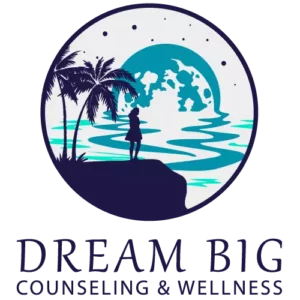Finding a couples therapist can be a transformative step towards building stronger relationship skills and overcoming emotional obstacles. Whether you’re navigating communication challenges, intimacy issues, or trust barriers, the right therapist can guide you towards a more fulfilling partnership.
- Relationship Skills: A therapist can teach you effective communication and conflict resolution techniques, strengthening the bond between you and your partner.
- Emotional Obstacles: Therapy provides a safe space to explore and address underlying emotional issues that may be impacting your relationship.
- Holistic Healing: A well-rounded approach focuses not just on the relationship, but on individual growth and healing as well.
Building a healthy relationship isn’t just about resolving conflicts; it’s about creating a deeper connection through understanding and empathy.
Understanding Couples Therapy
When it comes to improving your relationship, couples therapy can be a game changer. But what exactly does it involve?
Licensed Marriage Family Therapist (LMFT)
A Licensed Marriage Family Therapist (LMFT) is a trained professional specializing in relationship dynamics. They have the skills to help couples steer tough times and improve their connection. An LMFT can help couples navigate red flags in the therapeutic process, fostering trust and open communication, which are crucial for achieving healing and relief in relationships.
- Training: LMFTs undergo rigorous education and clinical training, equipping them with the tools to support couples effectively.
- Expertise: They are experts in helping partners understand each other better and develop healthier communication patterns.
Relationship Counseling
At its core, relationship counseling is about helping couples build stronger, more satisfying partnerships. It involves working through issues that might be holding you back from a fulfilling relationship.
- Communication: Learn how to express feelings and needs clearly to your partner.
- Conflict Resolution: Develop strategies to handle disagreements in a constructive way.
Emotionally Focused Therapy (EFT)
One of the most popular approaches in couples therapy is Emotionally Focused Therapy (EFT). This method focuses on the emotional bond between partners.
- Strengthening Bonds: EFT helps couples reconnect by addressing the emotional needs that often go unmet.
- Proven Success: Research shows that EFT can significantly improve relationship satisfaction. Many couples find their way back to each other with the help of EFT.
Couples therapy isn’t just about fixing what’s broken. It’s about building a stronger foundation for the future. Whether through the expertise of an LMFT or the transformative power of EFT, therapy offers couples a path to deeper understanding and connection.
Finding a Couples Therapist
Choosing the right couples counselor can be a pivotal step in your relationship journey. Here’s how to find a couples therapist that fits your needs.
At Dream Big Counseling and Wellness, we offer a range of services to support couples in their journey toward a healthier relationship.
- Qualified Professionals: Our therapists are certified mental health professionals who adhere to high professional standards, ensuring you receive the best care.
- Personalized Approach: We tailor our therapy sessions to meet your specific needs, focusing on your unique relationship dynamics.
Our Approach to Emotionally Focused Therapy
We provide a comprehensive approach to couples therapy, focusing on effective communication and relationship-building strategies to foster healthy relationships.
- Detailed Profiles: Learn about our therapists’ approaches, experience, and areas of expertise to find the right fit for you.
- Client Testimonials: Hear from other clients about their experiences and the positive impact our therapy has had on their relationships.
Commitment to Relationship Satisfaction and Success
Our therapists are dedicated to helping couples navigate their issues and strengthen their bond. Many couples wait several years to seek therapy for relationship issues, but early intervention can be crucial.
- Focus on Relationship Preservation: We emphasize the importance of maintaining and enhancing your relationship, using strategies that align with your commitment to making your partnership work.
- Tailored Strategies: Our therapists work with you to develop personalized strategies that support your relationship goals.
Individual Goals: Be clear about what you hope to achieve. Discuss these goals with our therapists to ensure they can support your vision.
What to Consider When Choosing a Therapist
When choosing a therapist for couples therapy or marriage counseling, it’s crucial to look beyond just qualifications. Here are key factors to consider:
Treatment Style
Different therapists employ various treatment styles. The most common include:
- Emotionally Focused Therapy (EFT): This approach is widely recognized for its effectiveness, helping couples understand and reorganize emotional responses. It’s backed by research, showing significant success in fostering connection and reconciliation.
- Cognitive Behavioral Therapy (CBT): Focuses on changing negative thought patterns to improve behavior and emotional regulation. This style can be beneficial for couples looking to alter specific interaction patterns.
Choosing a treatment style that resonates with both partners can improve the therapy experience. Discuss potential methods with your therapist to ensure their approach aligns with your needs.
Personal Chemistry
Personal chemistry with your therapist is vital. You should feel at ease and understood. A strong rapport can lead to more open communication and better outcomes. Here’s how to gauge chemistry:
-
Initial Consultation: Use this meeting to assess comfort levels. Do you feel heard and respected? Is the therapist approachable and empathetic?
-
Ongoing Comfort: It’s okay to switch therapists if you don’t feel comfortable after a few sessions. Therapy is a personal journey, and feeling at ease with your therapist is non-negotiable.
Individual Goals
Before starting therapy, identify your individual goals. What do you hope to achieve? Improved communication, conflict resolution, or deeper emotional connection? Share these goals with your therapist. They can tailor sessions to meet your specific objectives.
-
Goal-Setting Sessions: Some therapists offer initial sessions focused on goal setting. This can be a great way to align expectations and ensure the therapist supports your vision.
-
Regular Check-Ins: Throughout therapy, revisit your goals to track progress and make adjustments as needed.
Finding a therapist who aligns with your treatment style, personal chemistry, and individual goals can make a world of difference in your therapy journey. Investing time in this selection process is crucial for fostering a successful therapeutic relationship.
Scheduling an Initial Consultation
Scheduling an initial consultation with a couples therapist is a crucial first step in finding the right fit for you and your partner. This initial meeting, often conducted via phone or video call, allows you to discuss your concerns, ask questions, and get a feel for the therapist’s approach and personality.
When setting up this consultation, consider the following:
- Experience and Approach: Ask about the therapist’s experience working with couples and their specific approach to therapy. Understanding their methods can help you determine if they align with your needs.
- Goals for Therapy: Clearly discuss your goals and what you hope to achieve through therapy. This helps the therapist understand your expectations and tailor their approach accordingly.
- Availability and Schedule: Inquire about the therapist’s availability to ensure their schedule aligns with yours. Consistent sessions are key to making progress.
- Fees and Insurance: Discuss the therapist’s fees and whether they accept your insurance. Understanding the financial aspect upfront can prevent future stress.
- Comfort Level: Pay attention to how you feel during the conversation. Do you feel comfortable and heard? A good therapist will make you feel at ease from the start.
This initial consultation is your opportunity to assess whether the therapist is a good fit for you and your partner. Don’t hesitate to ask questions or seek a second opinion if needed. Finding the right couples therapist can set the foundation for a successful therapeutic journey.
The Cost of Couples Therapy
Average Cost
The cost of couples therapy can vary widely based on location, therapist experience, and session length. On average, you might expect to pay between $100 and $200 per session. Investing in your relationship can lead to long-term benefits.
Insurance Options
Insurance can sometimes cover the cost of therapy, but understand your specific plan. Here are a few steps to take:
-
Check Your Coverage: Contact your insurance provider to see if couples therapy is included in your plan. Some plans cover therapy if it’s deemed medically necessary.
-
Understand Co-Payments and Deductibles: Even if therapy is covered, you might have to pay a co-payment or meet a deductible. Knowing these details can help you budget accordingly.
-
In-Network vs. Out-of-Network: Therapists in your insurance network might offer lower rates. However, some plans allow you to see out-of-network therapists with partial reimbursement.
By exploring these options, you can find a way to make therapy more accessible and affordable, allowing you to focus on healing and growth within your relationship.
What to Expect in Family Therapy Sessions
Family therapy sessions are designed to help couples address relationship issues and improve communication skills. Here’s what you can typically expect during these sessions:
- Safe and Neutral Space: The therapist will create a safe and neutral environment where both partners can express themselves openly. This space is crucial for honest and productive conversations.
- Identifying Patterns: The therapist will help you identify patterns and dynamics that may be contributing to your relationship challenges. Understanding these patterns is the first step towards change.
- Developing Communication Skills: You and your partner will work together to develop healthy communication skills and conflict resolution strategies. Effective communication is the cornerstone of a healthy relationship.
- Homework and Exercises: The therapist may assign homework or exercises to help you practice new skills outside of sessions. These activities reinforce what you’ve learned and promote continuous improvement.
- Combination of Therapies: Sessions may involve individual therapy, couples therapy, or a combination of both, depending on your needs.
A good therapist will work with you to establish a comfortable and supportive therapeutic relationship. They will guide you through navigating relationship challenges and work towards building a stronger, more fulfilling relationship.
Some common techniques used in family therapy include:
- Emotionally Focused Therapy (EFT): This approach focuses on improving emotional connection and intimacy in relationships.
- Gottman Method Couples Therapy: This method emphasizes building a strong foundation of trust, intimacy, and communication.
- Cognitive-Behavioral Therapy (CBT): This approach helps individuals identify and change negative thought patterns and behaviors that may be contributing to relationship challenges.
Remember, family therapy is a collaborative process that requires commitment and effort from both partners. With the right therapist and a willingness to work together, you can build a stronger, healthier relationship.
Frequently Asked Questions about Finding a Couples Therapist
What kind of therapist is best for couples?
When seeking help for relationship challenges, a Licensed Marriage and Family Therapist (LMFT) is often an ideal choice. These professionals are specially trained to work with couples and families, focusing on improving relationship skills and addressing emotional obstacles.
Emotionally Focused Therapy (EFT) is a popular and effective approach used by many LMFTs. It focuses on strengthening emotional bonds and has shown positive outcomes for many couples. Research indicates that EFT can lead to significant improvements in relationship satisfaction and emotional connection.
By utilizing these resources, you can find a qualified therapist who aligns with your relationship goals and preferences.
Conclusion
Finding the right couples therapist can be a transformative step in nurturing a healthier and more fulfilling relationship. At Dream Big Counseling and Wellness, we believe in the power of holistic healing and offer a supportive environment for couples seeking to strengthen their emotional bonds.
Our approach is rooted in compassion and understanding, allowing each partner to explore their individual needs while working towards shared goals. We focus on empowering couples to overcome challenges and achieve their fullest potential together.
Whether you’re facing specific relationship issues or simply want to improve your connection, our team of experienced therapists is here to guide you on your journey. Our goal is to provide a safe space where you can openly communicate and grow as a couple.
At Dream Big Counseling and Wellness, we’re committed to helping you and your partner thrive.



